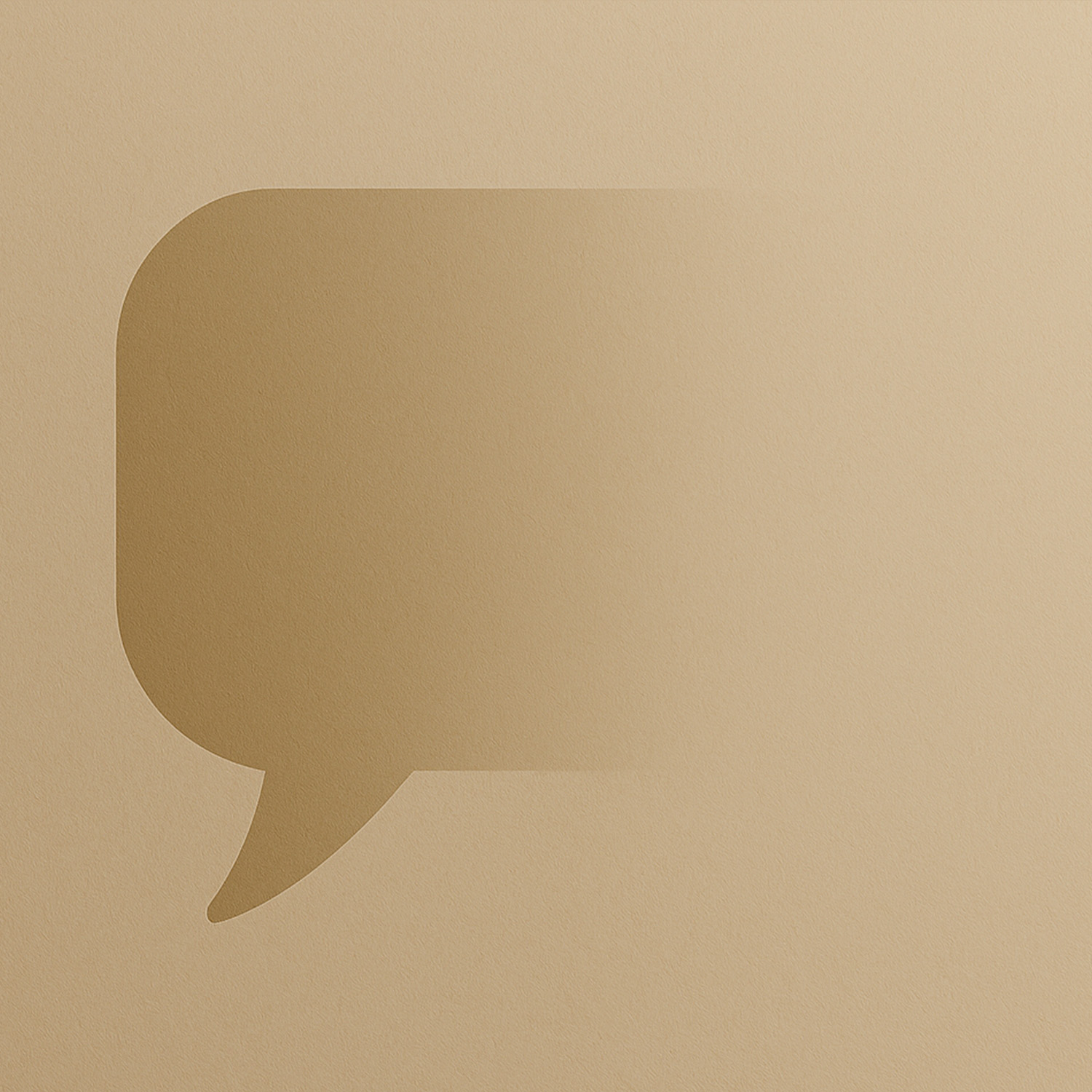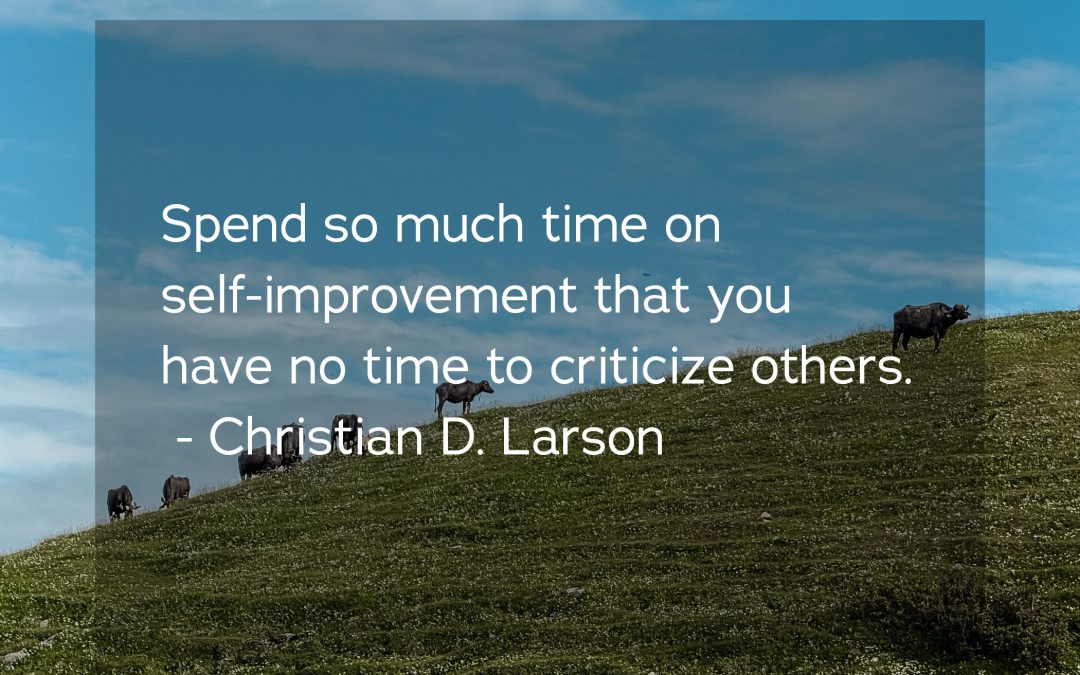 There’s a quote by Christian D. Larson that’s been sitting with me for months now: “Spend so much time on self-improvement that you have no time to criticize others.” I remember falling in love with it the second I read it. It felt powerful, honest, even freeing, but I also remember thinking, there’s no way anyone actually lives like that. We have too many thoughts, too many opinions, too many reactions to everything. How can we just… not?
There’s a quote by Christian D. Larson that’s been sitting with me for months now: “Spend so much time on self-improvement that you have no time to criticize others.” I remember falling in love with it the second I read it. It felt powerful, honest, even freeing, but I also remember thinking, there’s no way anyone actually lives like that. We have too many thoughts, too many opinions, too many reactions to everything. How can we just… not?
Every day, our minds are racing. Rajen uncle once said that thousands of thoughts pass through our heads each second, and out of those, we maybe process one or two, and even then, barely. And the rest? They don’t just disappear. They bubble up in subtle comments, half-formed judgments, eye rolls, or silence. I catch myself thinking about what someone else did or said, and before I know it, I’m knee-deep in an internal TED talk about their life instead of my own.
What really made me stop and reflect was this pattern I noticed in myself, especially at home. I’ve always been the type to say what’s on my mind. My family has encouraged that, and I appreciate it. But recently, I’ve started asking a different question. Just because I can say it, does that mean I should? Is what I’m about to say coming from a place of awareness, or just another random thought looking for a place to land? Because if most of our thoughts are about others — their choices, their behaviors — when do we ever stop to think about ourselves?
 I’ve realized that most of the time, we speak about others to avoid looking at ourselves. We’ll give advice we don’t take. We’ll judge things we haven’t even tried to understand. And somewhere along the way, it becomes easier to point fingers than to sit with the discomfort of our own flaws. But here’s the catch: if I can’t bring myself to speak honestly about my own shortcomings in front of others, then who am I to offer my opinion on theirs?
I’ve realized that most of the time, we speak about others to avoid looking at ourselves. We’ll give advice we don’t take. We’ll judge things we haven’t even tried to understand. And somewhere along the way, it becomes easier to point fingers than to sit with the discomfort of our own flaws. But here’s the catch: if I can’t bring myself to speak honestly about my own shortcomings in front of others, then who am I to offer my opinion on theirs?
This has made me a little quieter lately. Not in a shut-down kind of way, but in a trying-to-process-before-I-speak kind of way. I think people sometimes mistake that for distancing or self-isolating. The truth is, I’m still figuring out where the balance is. Between saying too much and saying nothing. Between always giving advice and just being there without words. And in that space, I’ve learned something important. It’s okay not to react. It’s okay not to jump in. Not everything needs a response, especially if that response has nothing to do with your own inner work.
 Because life has a way of swinging, like a pendulum. I’ve noticed this especially when trying to change habits. We go to extremes. We cut out all sugar. We delete all social media. We go zero to one hundred thinking it’ll bring peace. But what it often brings is chaos. When you pull the pendulum all the way to one side, it’s bound to come crashing back with the same force. I’ve been there too, in the middle of a social media detox, trying to convince myself that I needed to be rigid to be better. But better doesn’t come from force. It comes from balance.
Because life has a way of swinging, like a pendulum. I’ve noticed this especially when trying to change habits. We go to extremes. We cut out all sugar. We delete all social media. We go zero to one hundred thinking it’ll bring peace. But what it often brings is chaos. When you pull the pendulum all the way to one side, it’s bound to come crashing back with the same force. I’ve been there too, in the middle of a social media detox, trying to convince myself that I needed to be rigid to be better. But better doesn’t come from force. It comes from balance.
When we talk about flexibility, we usually think physical — yoga, stretching, being able to touch your toes. Or maybe we think mental — being open-minded, letting go of stubbornness. Or socially — being okay with last-minute plan changes and going with the flow. But lately, I’ve been seeing flexibility a little differently. To me, flexibility is just another word for balance. You can’t be physically flexible without balance in your body. You can’t be mentally flexible without emotional stability. And you definitely can’t be socially flexible if your life has no space or rhythm.
 So then, why are we so quick to jump to extremes? Maybe because they feel clean. Controlled. We think: “If I just remove the problem — the junk food, the scrolling, the late nights — everything will fix itself.” But that’s not how it works. I’ve been watching The Good Doctor lately, and there were moments that stuck with me. When patients have aggressive, fast-moving cancer, the doctors cannot just go in and remove it. They had to slow it down first. Shrink it. Give it time. Then, and only then, could they take it out safely. It made me think that maybe our habits, our struggles, our reactions are like that too. Maybe we don’t need to remove them all at once. Maybe we just need to understand them, slow them down, and soften our approach.
So then, why are we so quick to jump to extremes? Maybe because they feel clean. Controlled. We think: “If I just remove the problem — the junk food, the scrolling, the late nights — everything will fix itself.” But that’s not how it works. I’ve been watching The Good Doctor lately, and there were moments that stuck with me. When patients have aggressive, fast-moving cancer, the doctors cannot just go in and remove it. They had to slow it down first. Shrink it. Give it time. Then, and only then, could they take it out safely. It made me think that maybe our habits, our struggles, our reactions are like that too. Maybe we don’t need to remove them all at once. Maybe we just need to understand them, slow them down, and soften our approach.
Because I’m tired of the extremes. Tired of swinging back and forth. One day fully online, the next day deleting every app. One moment pouring my heart out, the next going completely quiet. Somewhere in the middle is where the peace lives. And I’m trying, slowly, softly, to find that middle.
So, I keep returning to that quote. Not just as an idea to admire but as a practice to live. Spend so much time on self-improvement, real, grounded, quiet self-improvement, that there’s no time left to criticize anyone else. That’s the version of me I’m working toward. Not perfect, not always balanced, but getting better at catching the swing before it crashes.
And maybe that’s enough.


Anuj, I love this post. You are so right. We tend to go to extremes with exercise, diet, screen time, etc. The key is balance. No need to give up desserts completely. No need to hit the gym 7 days a week. No need to delete facebook or insta. Finding a balance sometimes takes more discipline than going to extremes. But that is the goal for sure and is a healthier option, both emotionally and physically. The second part is the reacting and judging. “pause” before responding is the best tool if we can implement it. Will keep this post in mind as I try to implement both. Thanks for the reminder.
This is so well written; I can’t describe how many people need to hear this, especially with the presence of social media and the urge to fall into extreme habits. I love the paragraph about flexibility and balance being synonymous, both physically and emotionally; I think it’s important for us to keep this way of thinking in mind.